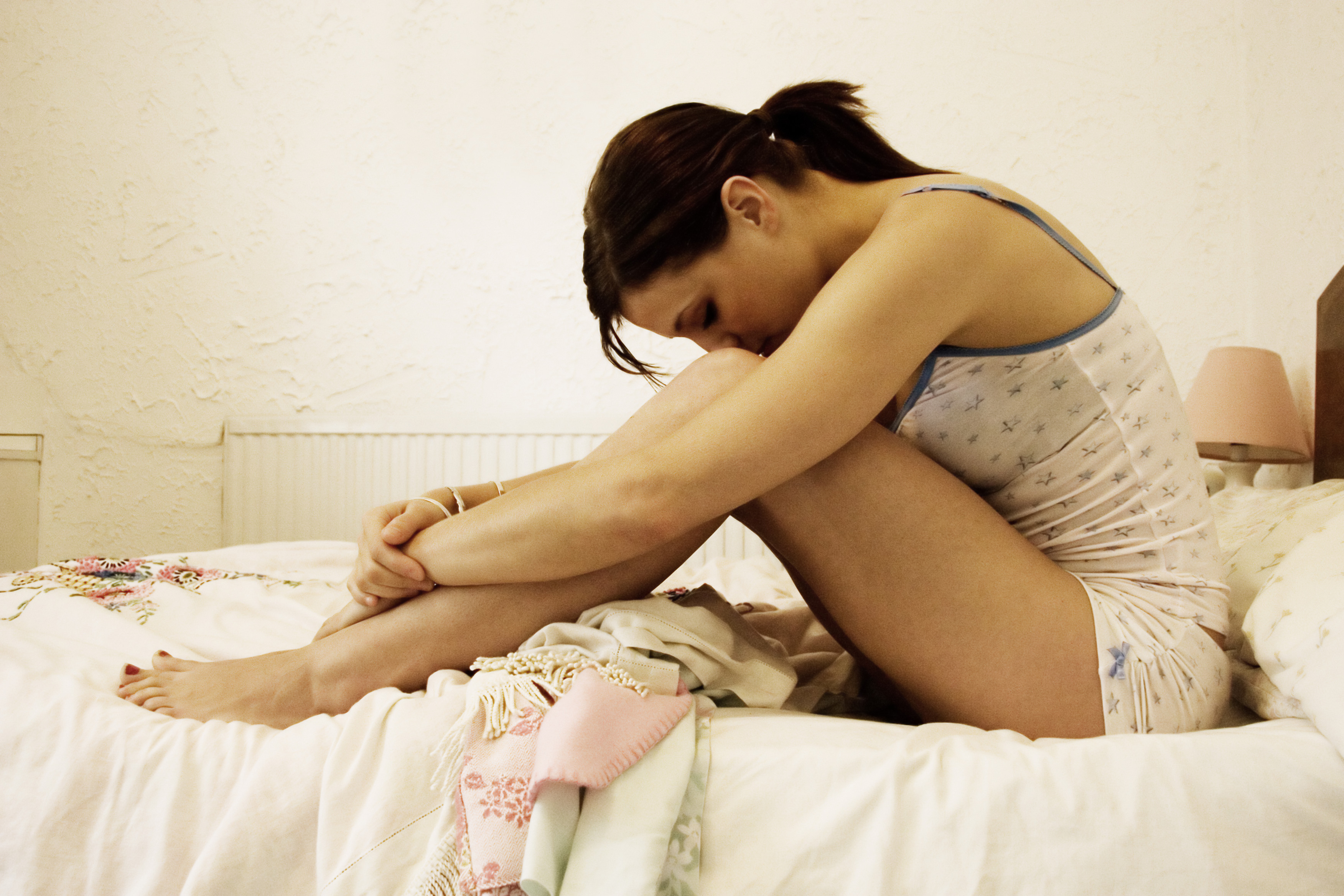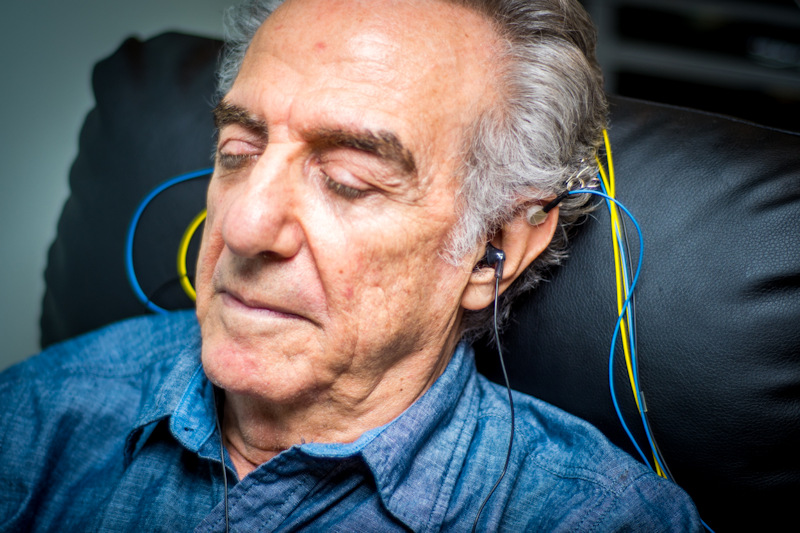Anxiety After Alcohol

Understanding the Brain Chemistry Behind This Vicious Cycle
If you’ve ever experienced overwhelming anxiety after drinking, you’re not alone. This phenomenon, often called “alcohol-induced anxiety,” is more than just a painful side effect—it’s a complex interplay of brain chemistry that can trap people in a challenging cycle of repeated alcohol abuse. Let’s explore the science behind this experience and, more importantly, how to break free from it.
The Brain Chemistry Behind the Struggle
When alcohol enters your system, it initially acts as a depressant, creating feelings of relaxation and reduced anxiety. However, what happens next is crucial to understanding why anxiety can become severe during withdrawal.
The THIQ Factor: A Key to Understanding Addiction
Tetrahydroisoquinoline (THIQ) is a compound that plays a significant role in alcohol dependence and anxiety. Here’s what research has revealed about this potent molecule:
THIQ forms in the brain when alcohol is consumed regularly, creating a cascading effect:
- It binds to opiate receptors, similar to morphine
- Accumulates in the brain over time with continued alcohol use
- Remains present long after someone stops drinking
- Drives intense cravings and anxiety during withdrawal
The presence of THIQ helps explain why the anxiety-alcohol cycle can be so challenging to break. When someone drinks to relieve anxiety, they’re actually:
- Temporarily alleviating THIQ-induced distress
- Creating more THIQ in their brain
- Setting themselves up for worse anxiety when the alcohol wears off
- Strengthening the cycle of dependence
This biochemical process creates a “kindling effect,” where each withdrawal period becomes potentially more severe than the last.
The Anxiety-Alcohol Cycle
Understanding this cycle is crucial for breaking it:
- Initial Drinking Phase
- Alcohol activates GABA receptors
- Creates temporary calm and relaxation
- Begins THIQ production
- Withdrawal Phase
- GABA activity drops below normal
- THIQ triggers anxiety and cravings
- The nervous system becomes hyperactive
- Sleep disturbances begin
- Craving Phase
- The brain seeks alcohol to relieve discomfort
- THIQ amplifies urges to drink
- Anxiety peaks without intervention
- Repeat Cycle
- Each iteration potentially strengthens the pattern
- Some withdrawal symptoms may intensify
- Anxiety sensitivity often increases
Breaking Free of the Struggle
One of the most promising interventions for breaking the anxiety-alcohol cycle involves focusing on sleep recovery. Research shows that proper sleep rehabilitation can:
Regulate Brain Chemistry
- Normalize GABA levels naturally
- Reduce THIQ’s influence over time
- Stabilize neurotransmitter function
Improve Anxiety Management
- Strengthen stress response systems
- Enhance emotional regulation
- Reduce panic attack frequency
Support Recovery
- Repair alcohol-induced brain damage
- Improve decision-making capacity
- Reduce relapse triggers
Sleep Recovery Program: A Path Through THIQ-Related Anxiety
The Sleep Recovery Program offers a structured approach to breaking the THIQ-anxiety cycle through systematic brainwave re-stabilization. This program works by targeting the neural pathways disrupted by alcohol use and enhanced by THIQ accumulation.
The protocol operates in three key phases:
Initial Stabilization (Weeks 1-2):
- EEG neurofeedback sessions using specific light and sound frequencies
- Customized audio programs that help regulate disrupted circadian rhythms
- Gentle brain entrainment to counter hyperarousal states common in THIQ syndrome
Neural Rehabilitation (Weeks 3-6):
- Progressive deeper states of relaxation
- Enhanced delta-wave production during sleep
- Restoration of natural GABA production
- Reduction of THIQ-related anxiety spikes
Integration Phase (Weeks 7-12):
- Establishment of sustainable sleep patterns
- Integration of learned relaxation techniques
- Development of anxiety resilience
- Natural reduction of THIQ influence
What makes this program particularly effective for THIQ syndrome is its ability to:
- Bypass the usual resistance to relaxation techniques
- Work directly with the brain’s natural frequency-following response
- Provide consistent, measurable progress
- Offer a non-pharmaceutical approach to anxiety relief and management
Participants typically report:
- Reduced anxiety severity within the first two weeks
- Improved sleep quality by week four
- Decreased alcohol cravings related to anxiety
- Better emotional regulation throughout the day
- Enhanced ability to handle stress without alcohol
This systematic approach helps break the THIQ-driven anxiety cycle by providing the brain with alternative pathways to relaxation and anxiety relief, ultimately reducing dependency on alcohol for emotional regulation.
Immediate Interventions
- Medical-Based Alcohol Treatment Support
- Seek professional guidance for withdrawal
- Get a comprehensive health assessment
- Environment Optimization
- Create a calm sleeping space
- Establish a consistent sleep schedule
- Minimize triggers and stressors
Long-term Strategy
- Sleep Architecture Re-Building
- Maintain a regular sleep schedule
- Practice relaxation techniques
- Limit screen time before bed
- Anxiety Management
- Learn breathing exercises
- Practice mindfulness
- Engage in gentle exercise
Personal Stories
Note: The client’s names have been changed to protect their privacy.
Sarah’s Journey
“The anxiety after drinking became overwhelming. I’d wake up at 3 AM, my heart racing, I felt like I was dying. Learning about THIQ helped me understand why I kept going back to alcohol despite knowing better. Sleep recovery techniques were my lifeline—they helped me break the cycle.”
Michael’s Recovery
“I didn’t understand why my anxiety got worse with each drinking episode. Understanding the science behind it, especially the role of THIQ, was eye-opening. Focusing on sleep quality changed everything for me. It’s been two years since my last drink.”
Frequently Asked Questions
Q: How long does alcohol-induced anxiety last? A: Acute anxiety typically peaks 24-72 hours after the last drink but can persist for weeks. THIQ levels gradually decrease with sustained sobriety.
Q: Can sleep recovery help with alcohol anxiety? A: Yes. Research shows that quality sleep helps regulate neurotransmitters disrupted by alcohol use, reducing anxiety and cravings.
Q: Is medication necessary for recovery? A: While not always necessary, medication can be helpful, especially in early recovery. Consult a healthcare provider for personalized advice.
Q: How quickly can sleep patterns improve? A: Many people notice improvements within 1-2 weeks of consistent sleep hygiene practices, though full recovery may take longer.
Looking Forward
Understanding THIQ and the importance of recovery provides hope for those struggling with alcohol-related anxiety. While the process can feel overwhelming, breaking free is possible with the proper support and strategies.
Remember:
- Recovery is a process, not an event
- Each person’s journey is unique
- Professional support can make a significant difference
- Sleep recovery is a powerful tool for healing
If you’re struggling with alcohol-related anxiety, know that you’re not alone. The science behind these challenges is complex, but recovery is possible. Reach out to healthcare providers who understand the role of THIQ and can support you in developing a comprehensive recovery plan that includes sleep rehabilitation.
With proper support and understanding of the underlying mechanisms, you can break free from the anxiety-alcohol cycle and reclaim your well-being. Every step toward better sleep and anxiety management is a step toward lasting recovery.
References:
-
Tetrahydroisoquinolines and alcoholism: where are we today? https://pubmed.ncbi.nlm.nih.gov/8727243/
- Neurotoxic Effects of Tetrahydroisoquinolines and Underlying Mechanisms. https://pmc.ncbi.nlm.nih.gov/articles/PMC3214777/
- β-Endorphins and THIQ and Their Relationship to Alcoholism.
- Neurofeedback training for alcohol dependence versus treatment as usual: study protocol for a randomized controlled trial. https://pmc.ncbi.nlm.nih.gov/articles/PMC5048603/
-
The efficacy of neurofeedback for alcohol use disorders – a systematic review. https://pubmed.ncbi.nlm.nih.gov/36416049/

